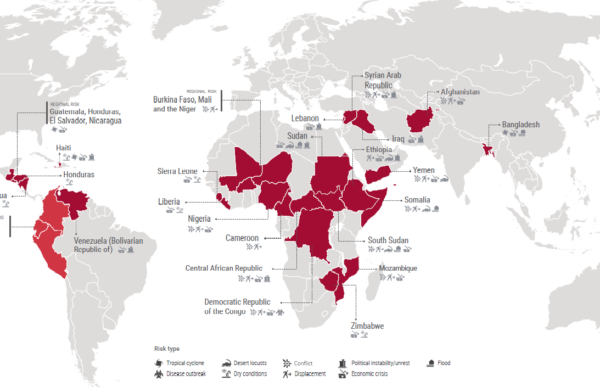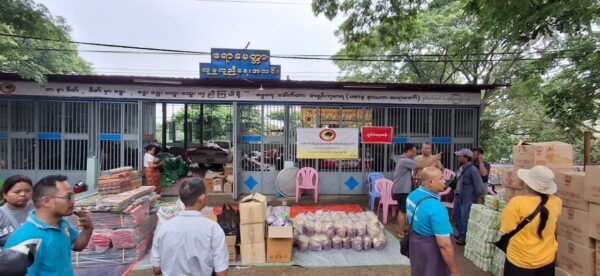Fighting Food Insecurity and COVID-19 Helps Fulfill Our Mandate

Related News

Mutsuko Ninomiya: Pioneer Missionary from Japan to Brazil

Alliance Churches in Thailand and Myanmar Respond to Dual Crises
Addressing the needs of the communities we serve is part of our mandate to proclaim Christ to all nations. With AWF’s Global Response to COVID-19 entering its second phase (development projects), we realized that food insecurity has been intensified by this pandemic and may have a lasting impact on vulnerable communities. Please read this article and let us pray together with clarity of purpose as we move forward to fulfill our mandate to witness to our faith in Christ with words and deeds.
The first phase of the AWF Global Response to COVID-19 helped more than 170,000 people in 18 countries through relief projects focused mainly on food aid and distribution. The AWF Relief and Development Office is now working with national Alliance churches to launch a second phase focused on development projects related to food security. The COVID-19 pandemic has exacerbated the food insecurity problem and it may have a lasting impact on many vulnerable communities.
Food insecurity is defined by the Food and Agriculture Organization (FAO) of the United Nations as the situation in which “people do not have physical, social and economic access to sufficient, healthy and nutritious food, allowing them to meet their energy needs and food preferences to achieve healthy and active life” (Source FAO, 2010). That affects practically all the continents of the world. While the causes of food insecurity differ from one continent to another, the implications and consequences seem to be the same everywhere. Several countries in which the Christian and Missionary Alliance (C&MA) intervenes are directly affected. The July 2020 report of the World Health Organization (WHO) cites 15 countries in which the churches of the C&MA are affected by food insecurity: Burkina Faso, Colombia, Ecuador, El Salvador, Congo (DRC), Guatemala, Honduras, Lebanon, Iraq, Liberia, Mali, Nicaragua, Peru, Syria and Venezuela. In addition to the usual causes of food insecurity, those linked to COVID-19 have been added.
Common causes of food insecurity
There are several reasons for food insecurity, including:
- Climate change: depending on the region, this manifests itself in droughts, floods, the development of new forms of locust attacks, natural disasters, etc. The consequences are dramatic in agricultural production.
- Social factors: these include extreme poverty, war, land conflicts, overpopulation, forest and bush fires.
- Terrorism (Islamic fundamentalism): in some African countries such as Burkina Faso, Mali, populations have abandoned thousands of hectares of cultivable fields due to terrorist attacks. This results in a massive displacement of populations (more than two million in Burkina Faso and Mali), thus creating food insecurity.
COVID-19 and food insecurity
According to the World Health Organization, as of August 12, there were 20,162,474 confirmed cases of COVID-19 worldwide, with 737,417 people dead. COVID-19 has created one of the greatest food disasters in the world. The quarantine of cities, and the inability to move food from one city to another, has been a major factor in insecurity all over the world.
- Agricultural production has slumped and come to a complete halt in many areas.
- Many farm fields simply have been abandoned.
- Farmers have been unable to repay agricultural loans.
- Many are sick and disabled and cannot buy sufficient food because of the illness.
- Factory closures and unemployment mean many are unable to afford food.
A few possible solutions
- Organizing prayer chains in all churches for a holistic vision.
- Encouraging each church to implement a community development plan.
- Training church members in how to adapt to climate change.
- Training church members in agricultural entrepreneurship.
- Supporting agricultural projects of churches in the fight against food insecurity.
- Addressing the situation created by COVID-19 with integrated projects covering education, health, economy, food, etc. to make the communities more resilient.


